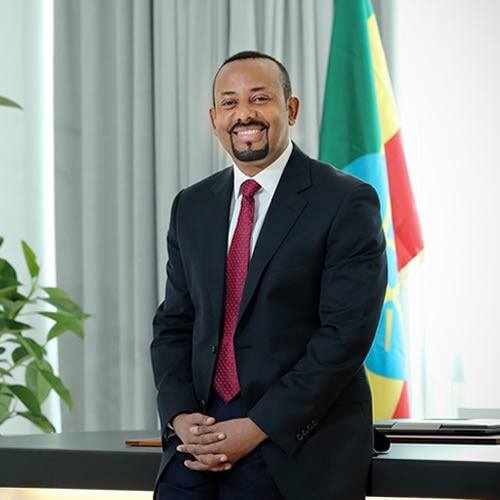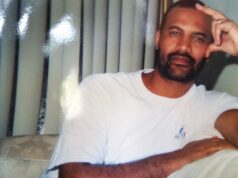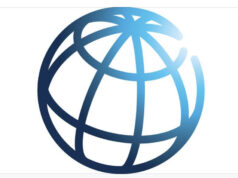When Prime Minister Abiy Ahmed came to power in April 2018, the political reforms and initiatives he promised were met with much hope that offered him popular legitimacy from almost all corners of Ethiopia. The prime Minister won the 2019 Nobel Prize for Peace for domestic reforms, including the release of thousands of oppositions political party leaders and members, lifting the ban on previously outlawed opposition political parties, and for his role in the peace deal that ended the border stalemate with neighbouring Eritrea. As part of its reform programme, Abyi’s government overturned the civil society legislation which had curtailed the right to freedoms of association and expression and tabled a new draft law before Parliament to replace draconian Anti-Terror Legislation (ATL).
Were the Abyi’s promises met?
However, the public enthusiasm following his ascendance to power lasted for few months and his promises to open political and media spaces, and protect human rights were not met. Arbitrary arrest, illegal prolonged detention and unfair trials of dissent voices, including journalists, politicians, activists and other critics of the government continued unabated. His promise to foster national reconciliation has not been met. Instead, his unitary rhetoric and practices brought him a unique suspicion among self-governing ethnic-based regional governments. Many questions Abyi’s commitment for Ethiopian’s constitutions. As a result, the government of Abyi remained at odd with the basic demand of Oromo ethnic group for political and economic equality that in essence brought him to power. Institutional reforms, notably around judicial independence and concrete measures to ensure truth, reconciliation, and accountability all of which are key to dealing with heightened political and ethnic tensions remained limited. The political space that opened up with his ascendance to power waned quickly. And the notorious torture chambers that were closed have been replaced by new jails that operate like the old ones. Today, many are foreseeing bleak prospects of Ethiopia due to mismanagement of transition by the prime minister.
What are key manifestations of Abyi’s mismanagement of the transition?
Though there have been several occasions of eminent violations of constitutional order and human rights provisions by the government, the following are key heinous crimes that have been committed under the watch of the prime minister.
First, the assassinations of several high-level government and security officials, which the government linked to an alleged coup attempt in the Amhara region was great political crises happened in the Amhara regional state of the country. However, many asks whether this was actually coup attempt or premediated killings orchestrated by Abyi Ahmad. This drained faster his acceptance and popularity in the second most populous region of the country.
Second, protest and political unrest in the capital, Addis Ababa, and Oromia following an attempt to withdraw security details of a popular Oromo activist and media director (now member of Oromo Federalist Congress), Jawar Mohammed without prior notice claimed life of many citizens. There is widespread believe among the Oromo ethnic group that Abyi plotted to kill Jawar Mohammed by withdrawing security details in the midnight using rogue elements. The protesters were met on occasion by excessive use of lethal force by the security, notably in Ambo town. The protests devolved rapidly into communal violence in several towns. The government said the unrest resulted in 86 deaths, 10 the result of “confrontations” with security forces. No one has been held accountable so far for attempting to remove security details, instigating conflicts, and killings. This has been taken by many as the first among many attempts to silence dissent voices criticizing the government among the Oromo ethnic group.
Third, the Sidama ethnic group submitted a request to the federal government to hold a referendum to secede from the Southern Nations, Nationalities and Peoples’ Region (SNNPR). The federal government failed to organize a vote within the constitutionally stipulated one-year limit. Violence in Awassa, capital of SNNPR, between protesters demanding a vote and security forces, followed by reported violence against non-Sidama residents of the region, resulted in the deaths of 53 people according to a zonal police official, the displacement of hundreds, and significant property damage. However, the government had not conducted full investigations into the killings. The SNNPR region was then placed under federal security control. Later, security forces arrested employees and board members of the Sidama Media Network (SMN) and shut down the station in Awassa following protests over the government’s failure to organize a referendum, according to media reports.
Fourth, shouting down of internet to supress freedom of expressions. For instance, following the alleged coup attempt in Amhara Regional State, the prime minister sought to justify a countrywide internet shutdown by telling media that the internet is “neither air nor water.” The government was particularly so harsh against Western Oromia (area under illegal military command post), where internet and telephone services were completely shut down for several months.
Fifth, communal violence orchestrated by regional and local governments. There are reports of surge in ethnic violence that resulted in thousands of killings across the country, where the security forces failed their duty to protect. Instead, the security forces, particularly the members of the regional police and local administration militia had active roles by siding with their ethnic groups involved in the communal violence. For instance, killings of several members of Qimant, Gumuz and Wollo Oromo minority groups by the Amhara community [vigilant group supported by regional and local government and polices] and consequent revenges have been carried out for long time under the watch of Abyi Ahmad. More stirringly, at least 12 students were killed during ethnic clashes in universities in Amhara and Oromia. The killing of an Oromo student in Weldia University, Weldia town in Amhara, triggered a series of revenge killings including in Dire Dawa, Dembi Dolo and Gondar universities. Around 35,000 students left university campuses to avoid the violence and returned to their homes.
Six, arbitrary detention, torture, and unfair trials of members of opposition parties. Hundreds of political opposition members, journalists and others who were critical of the government faced unfair trials on charges brought under the ATL. The trials were marked by illegal and prolonged pre-trial detention, unreasonable delays and persistent complaints of torture and other ill-treatment. The government has been severe particularly for two political parties: Oromo Liberation Front and Oromo Federalist Congress. A good example was an arrest of Colonel Gemechu Ayana, a prominent Oromo Liberation Front member, and who was detained [on terrorism charges] for eight months, in violation of ATL provisions which allow for a maximum four months’ pre-trial detention period. These parties are major competitors of prosperity party in the Oromia Region – largest regional state in the country. In addition, following the assassinations in June of the Amhara Regional State president and the Chief of Army in Addis Ababa, hundreds of people were arbitrarily arrested. Among those targeted were leaders of the Amhara Nationalist Movement (a political party), government officials, journalists, opposition political party leaders and members of the Addis Ababa Care Taker Committee which promotes administrative autonomy for residents of Addis Ababa. In its most recent report, the International Crisis Group indicated that Ahmed’s tactics were reminiscent of the authoritarian past he had vowed to abandon. He has successfully satisfied attribute of the authoritarian government, which immediately dwindled his legitimacy in almost all part of the country.
Postponement of upcoming election, why?
In the face of legitimacy crisis from every corner of the country, Abyi decision to postpone the upcoming election for unlimited time due to COVID-19 has already created a constitutional crisis. The five-year term of the federal and regional legislatures, as well as their administrations, will expire on September 30. This brings about a distinct challenge. The question is who will have the mandate to govern until next election?. As an outlet, the ruling party is seeking a constitutional interpretation to extend term office. Parliament endorsed this on May 5, 2020. They have asked the House of Federation to issue an interpretation within a month. This is an indicates Abyi’s aspirations to become the “big man” of Ethiopia at any cost. This would include operating outside the legal framework if necessary. He has reversed early gains that were made by opening the political space. Most opposition parties with significant constituencies have rejected the decision. The Oromo Federalist Congress and its six coalition parties have rejected it and called for a dialogue to find a political solution. The Tigray People’s Liberation Front rejected it as unconstitutional and said it would prepare for regional elections. It said this would avoid an illegitimate power grab by the incumbent.
Imminent crisis and way forward
The current constitutional crisis, Abyi’s proposal to continue on power, and yet complete lack of legitimacy are welcoming looming crisis in Ethiopia. The postponement of the poll without proper political settlement could be the last straw both for Abyi and country. The Tigray region has declared that it will go ahead with its regional elections. Neither the electoral board nor Abyi’s government can legally stop the Tigrayans from holding elections. Any attempt to stop the election by force could split the Ethiopian army along ethnic lines. Such an attempt could be a recipe for the Tigrayans to invoke article 39 of the constitution and declare an independent republic. Several major opposition groups, including the largest coalition of Oromo national organisations, have also declared they might go it on their own beyond September 30. They refuse to recognise an illegitimate government. The solution, therefore, is more political negotiation rather than unlawful constitutional “interpretation”, as there are no provisions in the constitution that lend itself for interpretation and extension of the incumbent’s mandate beyond September.

























